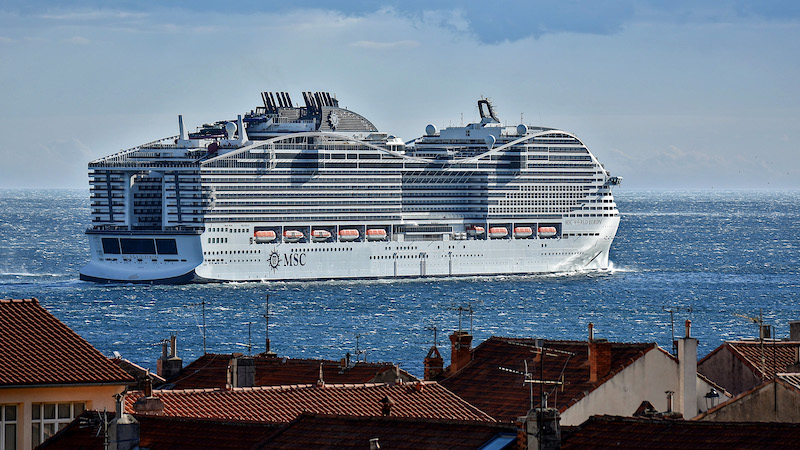Environmental campaigners have filed a lawsuit against the European Union over its inclusion of polluting planes and ships powered by fossil fuels in the bloc’s green investment rulebook.
The European Commission should review “flawed” sustainable finance criteria for the aviation and shipping sectors in the EU Taxonomy, a guide designed to funnel private investment towards net zero-aligned activities, according to a coalition of NGOs behind a legal challenge lodged at the European Court of Justice in Luxembourg on Tuesday.
The green groups claim the EU acted unlawfully in late 2023 when it introduced “loose” rules allowing a green label to be put on fossil fuel-powered planes and ships if they meet “weak” efficiency standards.
“The aviation and shipping criteria send completely the wrong signal to investors – directing investments to planes and ships that will pollute the climate for decades to come,” said David Kay, legal director at Opportunity Green, which filed the complaint alongside CLAW-Initiative for Climate Justice, Dryade and Dutch NGO Fossielvrij.
String of lawsuits
The EU introduced its “taxonomy for environmentally sustainable economic activities” in 2020 with the goals of preventing greenwashing and driving private capital into green technologies most needed for the transition to net zero emissions. Investments in “taxonomy-aligned activities” amounted to 440 billion euros between January 2023 – when the initial rules came into force – and May 2024, according to EU data.
How can governments tackle loss and damage at the national level?
But in a string of legal challenges, the rulebook has been accused of greenwashing highly polluting industries. Environmental campaigners at Greenpeace and a coalition including Client Earth and WWF filed two separate complaints at the European Court of Justice (ECJ) last year over the inclusion of fossil gas – under specific conditions and for a limited period of time – and nuclear energy in the list of green investments. The cases still need to be heard and a judgement is not expected before 2025.
The latest legal challenge filed on Tuesday takes issue with the criteria adopted in November 2023 for labelling certain aviation and shipping activities as sustainable.
“Marginal” emissions savings
In its rulebook, the EU Commission classed aviation and shipping as “transitional” activities because, it said, aircraft and ships with zero CO2 emissions are not yet technologically and economically feasible. The Commission introduced screening criteria to allow the inclusion of existing technologies when they comply with a series of efficiency standards which, the legislative body said, would help the world reach the Paris Agreement’s goal of limiting global warming to 1.5C.
But the NGOs argue that those thresholds are too broad and fail that scientific test. For example, giant cruise liners running on liquefied natural gas (LNG) and more than 7,000 new Airbus aircraft powered almost exclusively by fossil fuels – equivalent to 90% of the firm’s future orders – qualify as sustainable under the EU classification, analysis by the NGO Transport and Environment shows.
London airport expansion spotlights danger of “false hope” Jet Zero strategy
That is because, according to the regulations, their greenhouse gas emissions are lower than the older and more polluting ships and planes they would be replacing. But the NGOs argue those emissions savings are “marginal” and warn that promoting investments in those technologies will lock in carbon-intensive assets for decades.
Opportunity Green’s Kay said the Commission has “not put forward any evidence that these standards support a 1.5C pathway”.
“Given the long lifespan of these ships and planes, they will still be in the skies and the seas in 20-25 years’ time. That’s a dangerous thing for the taxonomy to be driving investment towards,” he added.
Aviation and shipping account for 8% of the EU’s total greenhouse gas emissions, but their share has risen rapidly over the last decade in line with continuing growth in air passengers and maritime trade.
The EU Commission did not respond to a request for comment.
